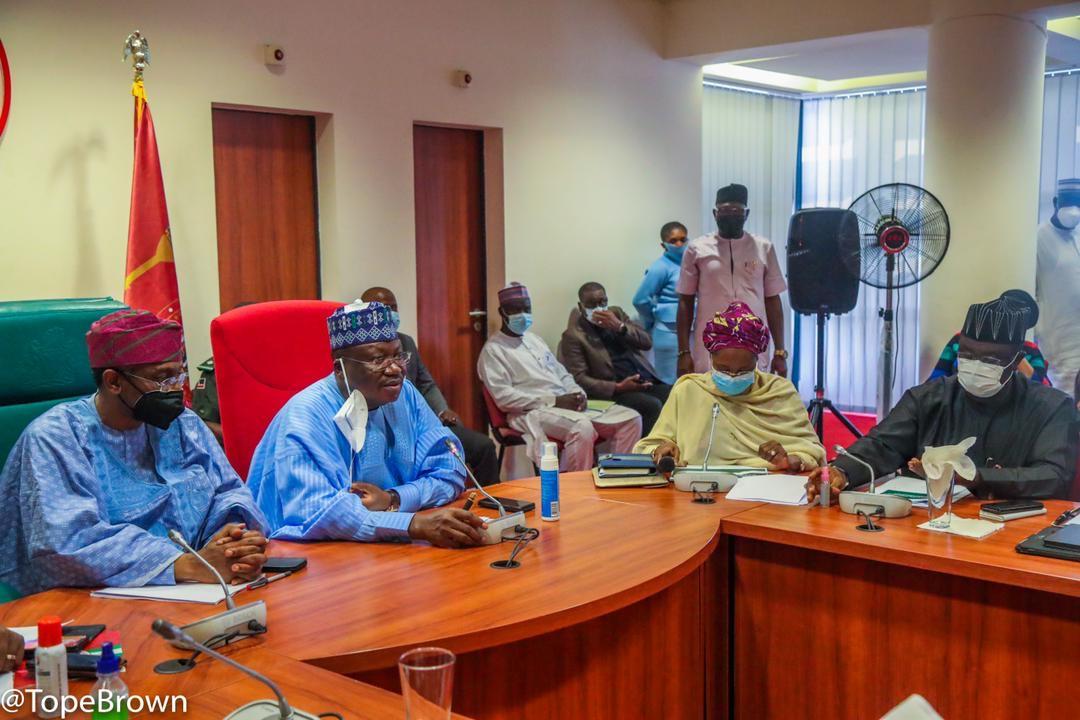
President of the Senate, Senator Ahmad Lawan, and Speaker of the House of Representatives, Femi Gbajabiamila, Monday evening held a two-hour meeting with the Minister of Finance, Budget & National Planning, Hajiya Zainab Ahmed, to discuss the country’s 2022-2024 Medium Term Expenditure Framework and Fiscal Strategy Paper.
The meeting was attended by the Deputy Senate President, Ovie Omo-Agege, the Deputy Speaker, Ahmed Idris Wase and some other principal officers of both chambers, as well as Senators and Members of the House of Representatives.
The meeting, Lawan said, according a statement by Ezrel Tabiowo, Special Assistant (Press) to President of the Senate, was at the instance of the leadership of the National Assembly to deliberate on projections in the 2022-2024 MTEF/FSP needed to facilitate the early presentation of the 2022 budget by President Muhammadu Buhari in September this year.
Lawan, in his welcome address, recalled the commitment of the Ninth National Assembly to the early passage of the nation’s annual budget, a development he said was responsible for the 100% implementation of the 2020 Appropriations Act. This feat, he believes, would be achieved also in 2021.
Since the 2022 Appropriations Bill would be predicated on the MTEF/FSP 2022-2024, he stressed that importance of ensuring “that this interaction takes place so that the National Assembly is able to consider the MTEF in very good time to allow the Executive arm of government prepare the Appropriations Bill for 2022.”
Speaking, the Minister of Finance recalled how Nigeria was able to make a quick exit from recession in the third quarter of 2020 despite the impact of the COVID-19 pandemic on the global economy.
She blamed the “negative growth” in the Nigerian economy on the significant and sudden drop in crude oil price in the international market, expressing joy that “the economy since then has sustained a tepid growth in the first quarter of 2021, with a growth of 0.51% consolidating our exit from recession in the fourth quarter.
“The growth of the Nigeria economy, we are pleased to say, is driven largely by the non-oil sector, which has risen to 0.79%, masking the deterioration in the oil sector.
“The sectoral growth in the non-oil sector was primarily driven by telecoms and agriculture sectors as well as other sectors of the Nigerian economy.
“Significant concerns still exist in the performance of trade, as well as transport sector which are still in a very strong negative growth”, she said.












